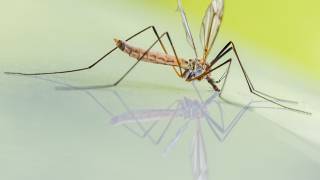Tobacco Plant Protein Produced Potential Zika Vaccine

The Zika virus infection in humans used to be described as a self-limiting febrile illness, with symptoms of rash, headache, and myalgia.
However, recent Zika outbreaks have linked Zika virus to the development of severe fetal abnormalities that include microcephaly and Guillain-Barre’ syndrome in adults. Tens of millions could be infected in the Americas in the coming years.
Currently, there are no licensed vaccines or therapeutics available to combat this virus.
A research team claims to have developed the world’s first plant-based Zika vaccine that could be more potent, safer, and cheaper to produce than any other vaccine effort. This vaccine candidate is based on a key Zika protein, called DIII.
“Our vaccine offers improved safety and potentially lowers the production costs more than any other current alternative, and with equivalent effectiveness,” said scientist Qiang “Shawn” Chen, a researcher in the Arizona State University Biodesign Center for IVV and professor in the School of Life Sciences.
“All flaviviruses have the envelope protein on the outside part of the virus. It has three domains. The domain III has a unique stretch of DNA for the Zika virus, and we exploited this to generate a robust and protective immune response that is unique for Zika,” said Chen.
The Zika virus belongs to the genus Flavivirus in the family Flaviviridae, and is closely related to the five serotypes of dengue virus, West Nile virus, tick-borne encephalitis virus, Japanese encephalitis virus, and yellow fever virus.
After developing enough material for the new vaccine candidate, Chen’s team performed immunization experiments in mice, which induced antibody and cellular immune responses that have been shown to confer 100 percent protection against multiple Zika virus strains in a mouse challenge.
“Above all, we have to ensure the utmost safety with any Zika vaccine, especially because the people who will need it most, pregnant women, have the most worries about their own health, and the health of the fetus,” said Chen. “This has to be 100 percent safe and effective.”
With this successful proof-of-principle, Chen hopes to partner with the medical community to begin the first phase of a human clinical trial in the next two years.
Along with Chen, the research team included Ming Yang, Huafang “Lily” Lai and Haiyan Sun. The study was partly supported by the National Institute of Allergy and Infectious Diseases. No conflicts of interest were reported.
Our Trust Standards: Medical Advisory Committee
- ASU Biodesign Scientists Develop Improved, Potentially Safer Zika Vaccine
- Virus-like particles that display Zika virus envelope protein domain III induce potent neutralizing immune responses in mice
- Zika Virus: Updates to Clinical Guidance and Recommendations for Pregnant Women and Infants
- Zika Virus
- Guillain-Barré Syndrome outbreak associated with Zika virus infection in French Polynesia: a case-control study


























